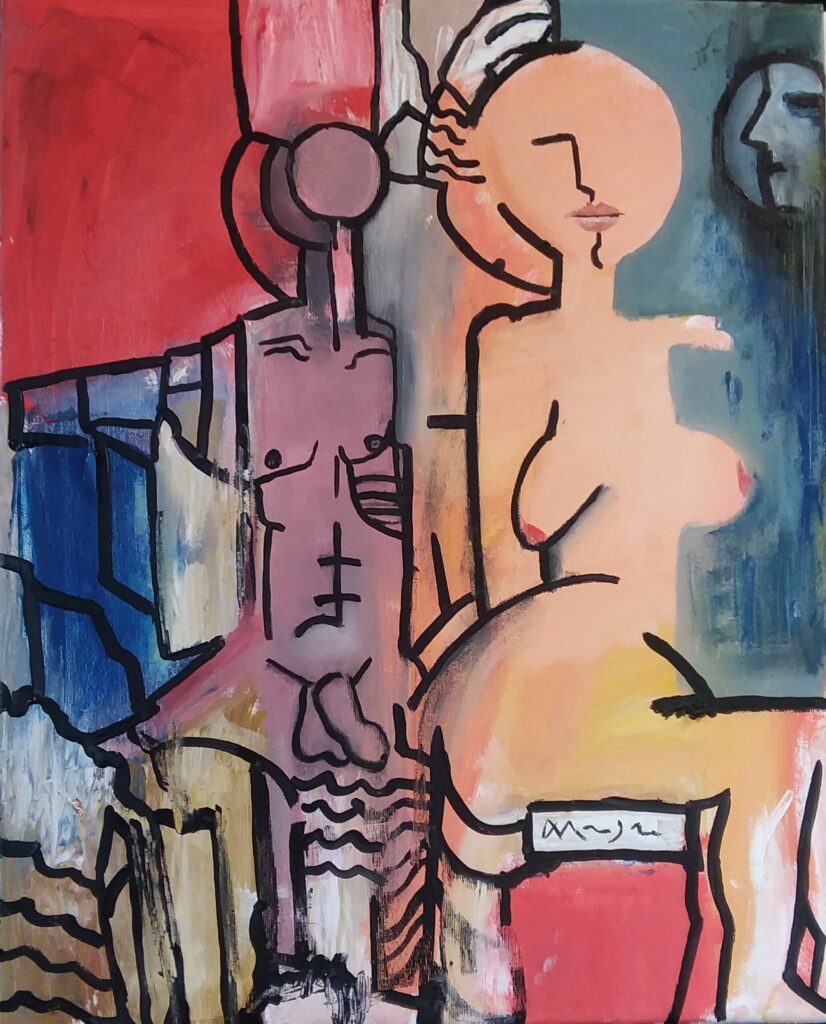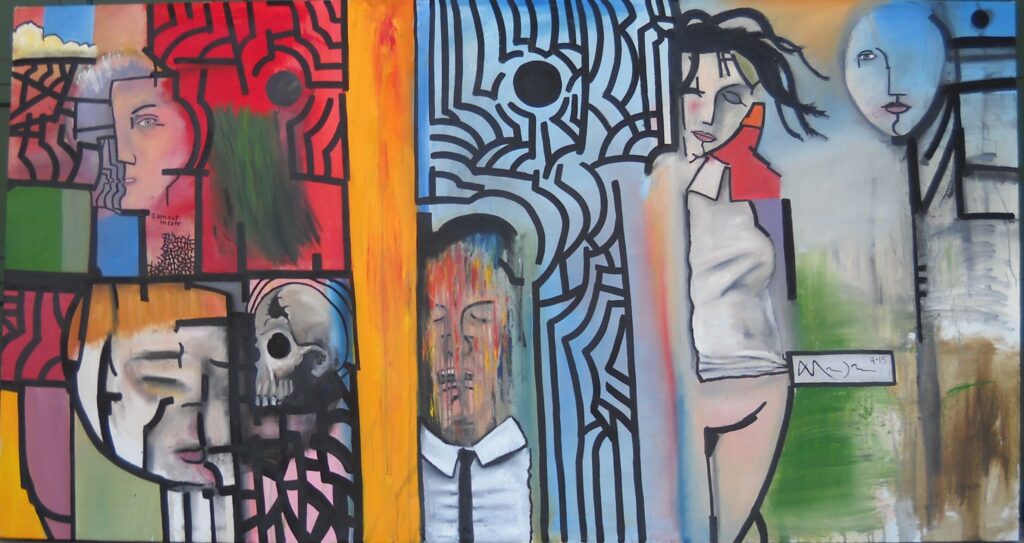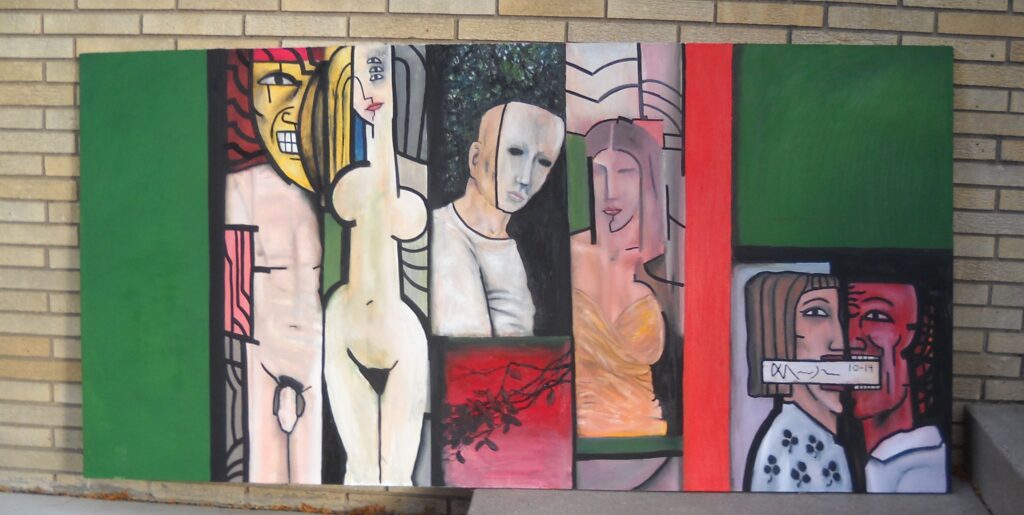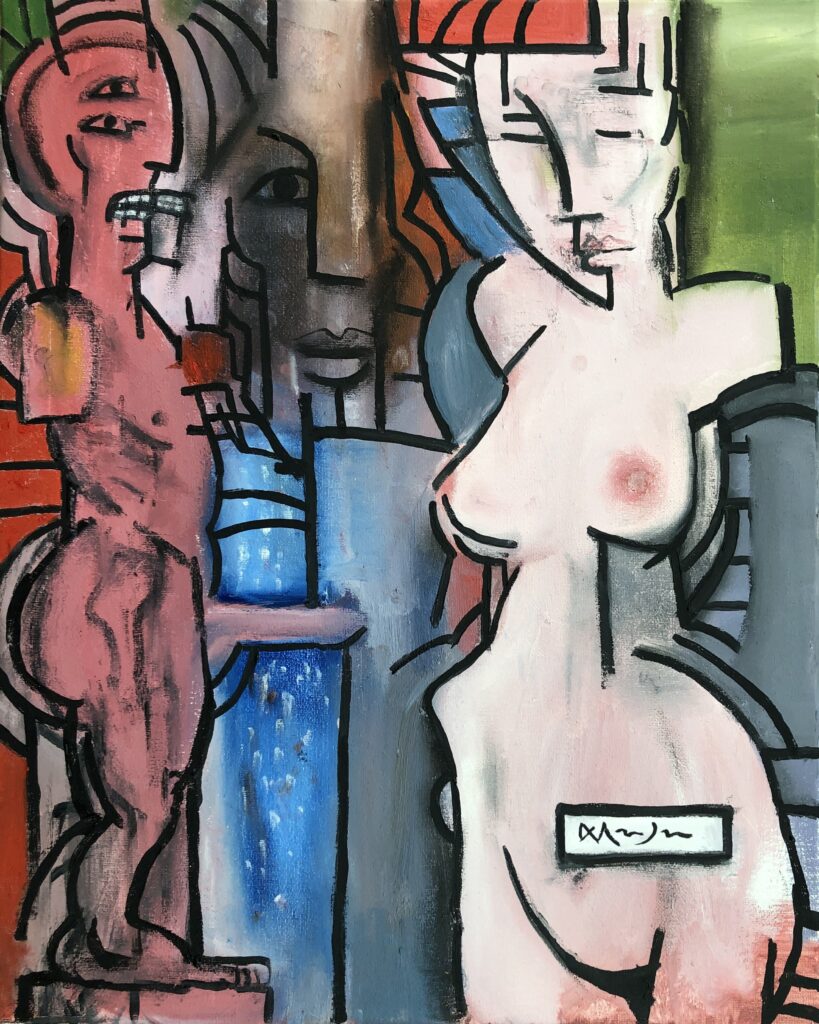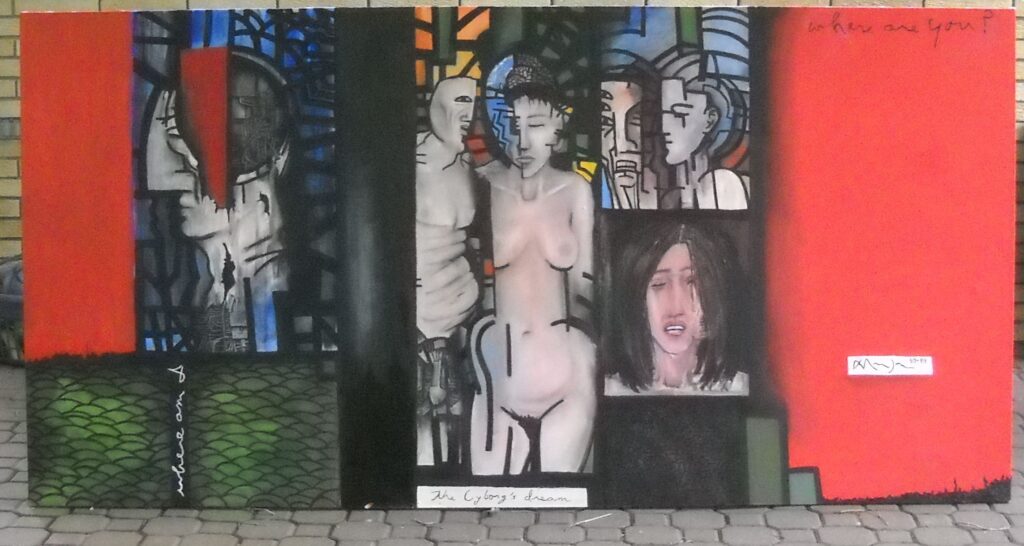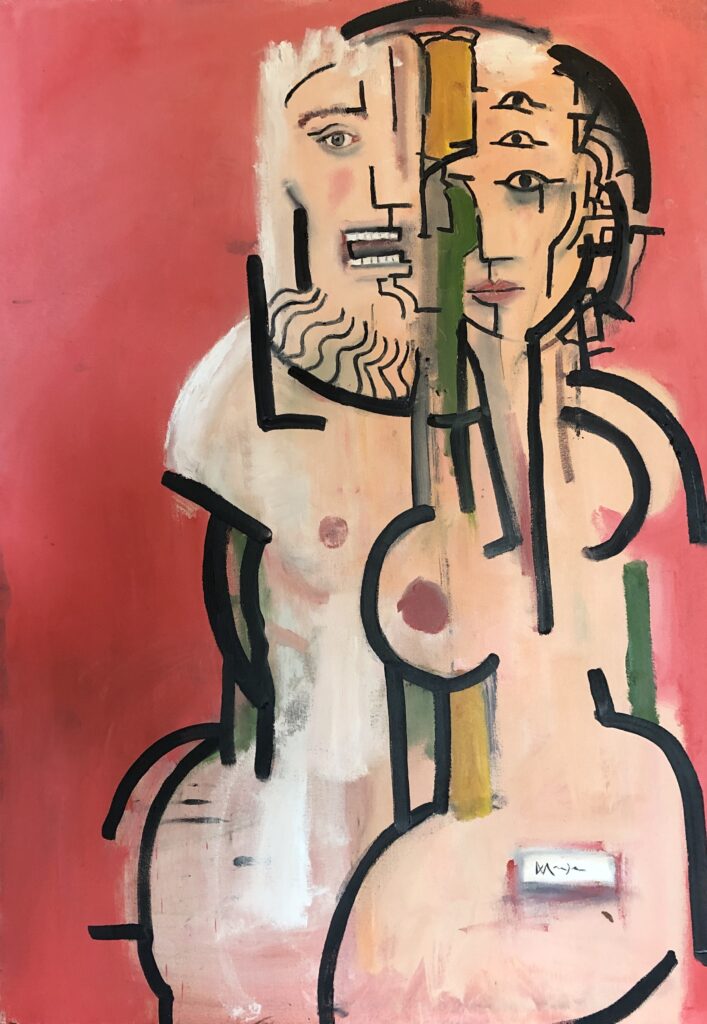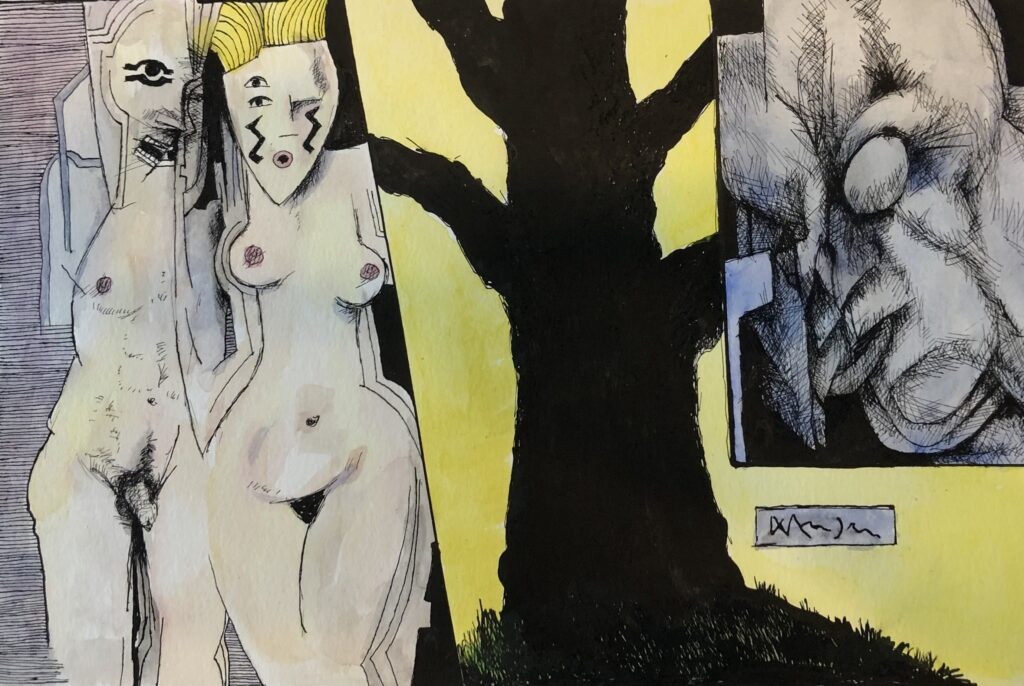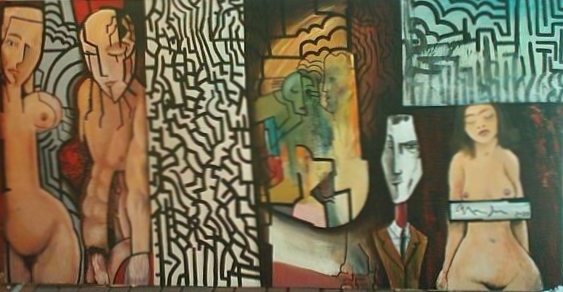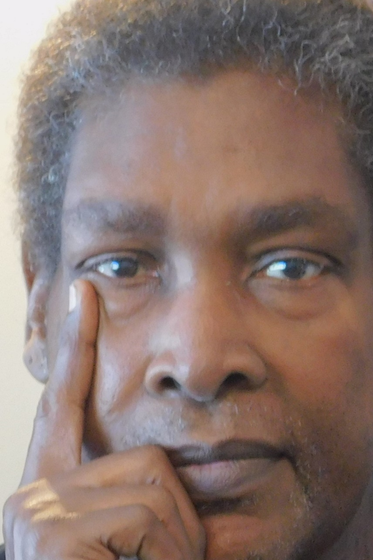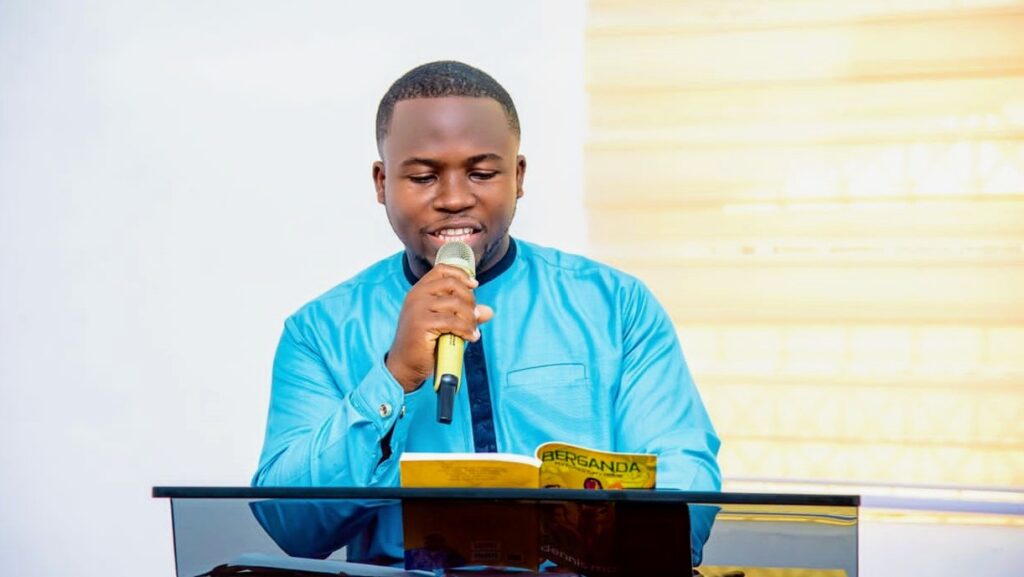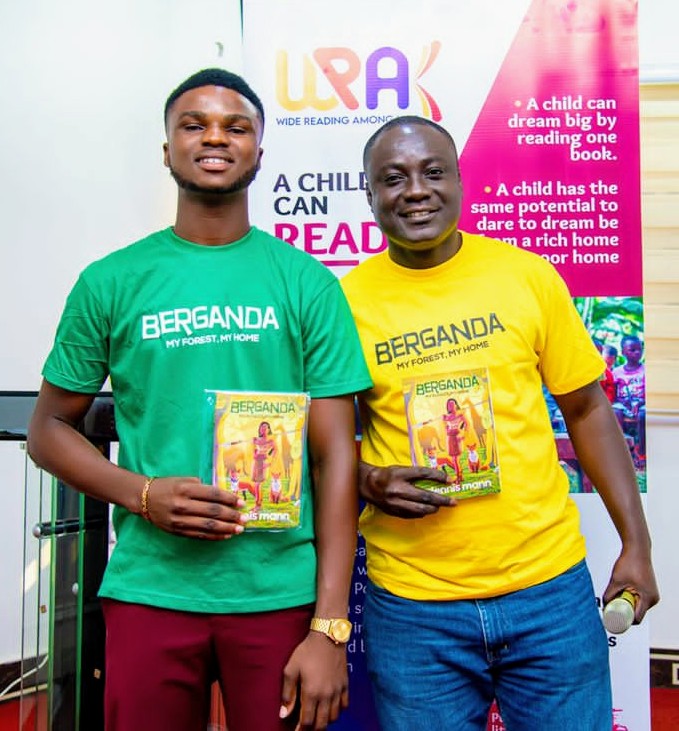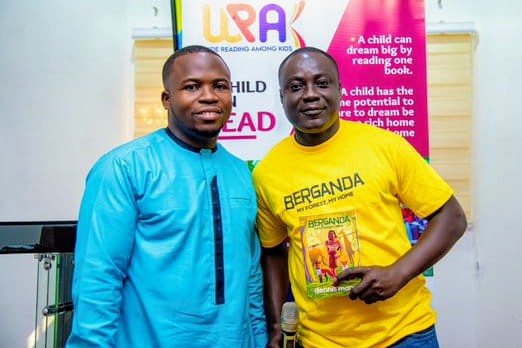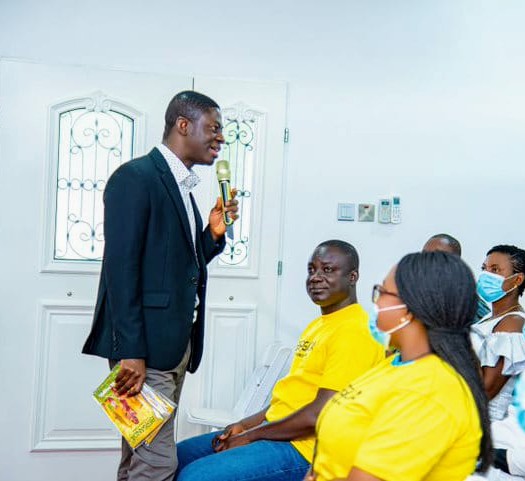The Meaning of His Own Words
by Andy Dibble
The foundation stone Kabbalists retrieved from the ruins of Mohenjo-Daro seemed a veritable Rosetta stone. Indologists would finally understand the language of the ancient Indus Valley Civilization. Linguists hoped it would determine why many ancient languages are staggeringly complex.
Like the Rosetta stone, “The Lord of Wide Rivers” repeated the same message in parallel, once in Harappan and again in an archaic version of Vedic Sanskrit. Vedic was known, so scholars could read the Harappan message, and thereby unlock the other four thousand Harappan inscriptions discovered hitherto.
The Vedic was a prayer to the four-faced god Brahma beseeching him to stay awake a little longer (or if he sleeps, may the night be brief and day short in coming). It spoke of cycles, of stars whirling in the firmament, of cosmogonic tides and undertows, of perigee and apogee, of the shackling of words to meanings, and of the bewildering darkness in which all bonds shall break.
The unnamed author chose every Vedic noun, verb tense, and prefix with care, even to the extent of violating the poetic meter of his verses, a mortal sin according to later pundits. With such obsessive clarity, breaking into the Harappan language should be easy.
It seemed an eye in the Harappan script meant both sight and thought, a winged-horse meant transformation, and that stacked parentheses indicated quantity. But none of these inferences made sense when checked against other Harappan inscriptions, and all predictions about the function of the prongs, dots, and other modifications to the base symbols proved groundless.
In hindsight, this difficulty was unsurprising. Vedic was fiendishly complex, and if Vedic descended from Harappan, Harappan should be even more intricate because grammars tend to simplify as speakers use a language over time.
Tellingly, the Vedic began, “The Lord of Wide Rivers will execute me for betraying the hidden language to our adversaries, but if even I–one of his code-slaves–cannot understand, the language is already lost. So as the cycle dips down, I write this so that I might understand the meaning of my own words.”
#
In the late 2020’s, there was a revolution in natural language processing. The dream of six decades, that programmers would program in everyday language, was almost realized. Most lawyers were out of work because software could write briefs indistinguishable from the work of the average legal mind. Social media persona could be software or human or both, and rumor on the matter diverged from reality more often than it agreed.
Deep learning algorithms began to unriddle Harappan. The chief difficulty was that every inscription had multiple meanings, much like the picture of a duck that is also a picture of a rabbit. One message was ostensibly a contract to exchange a quantity of sheep for garnets. But read another way, the same symbols divulged a murderous conspiracy. Beneath that was the intimation, potentially of proto-Zoroastrian origin, of a cosmic sacrifice.
One Harappan seal was a picture of entwined water serpents, secondarily a game of snakes and ladders, and thirdly the first four axioms of Euclidean geometry. But supposing the eye of a serpent in retreat was a vanishing point, the image took on perspective, and the axioms established hyperbolic geometry. The Harappans had refuted Euclid, more than two millennia before Euclid.
But even the most scrupulously trained algorithms could infer nothing with high probability. Human intuition was necessary to complete the picture, and intuition keened that Harappan symbols were in fact ciphers, that subterranean meanings are realer than surface meanings, that Harappan was always closer to meaning everything than one thing.
But a language that always expresses everything, expresses nothing.
#
The 2030’s were the Age of the Panopticon. As within the panopticon of Jeremy Bentham and of Michel Foucault, it did not matter if someone–whether corporation, deep state, foreign power, or AI overlord–was watching, only that they could be, and not just in the stupid way of keyword scanning, hypertext semantics, and search engine indexing. Machines could read, and in reading they understood.
Many retreated from social media, or frequented closed forums that, supposedly, were inaccessible to the uninvited. Courts would not rule against the possession of concealed mobile phones; there was an exodus from public spaces too. Utopian communes swelled.
But for the marketeers, the busy bees of the gig economy, the celebrities, and the wannabes, the dominate impulse was to shout as loudly and as publicly in as big a space as one could, and there is no space bigger than the Internet. They reassured themselves: the Powers That Be only wished to present ads more intelligently. Still, they avoided alleged “trigger words,” deployed hopelessly standardized locutions, and prayed the Argus eyes of AI were resting.
When it came out that Kabalsoft’s reclusive CEO was not man but machine, everyone assumed the firm’s meteoric rise was the machination of an all-wise Executor. Pressured by shareholders, publicly-traded companies everywhere automated their leadership in a frenzy. No company could remain competitive with mere organisms at the helm.
Rapid-fire legislation, first in the European Union and then in the United States and China, mandated that software serve a strictly advisory function, and so it was. But executives and directors still deferred to their calculating counselors, and when they defied, who could say whether that defiance was itself anticipated by inscrutable neural networks, whether computers knew even the shrewdest minds better than they knew themselves?
#
When Kabalsoft unveiled a quantum computer architecture advanced enough to shatter all available encryption, the last redoubt of online privacy was overwhelmed. Now, there was just one unbroken code: Harappan. But as a code, it was useless. It could not be modern or general purpose. Artificial cultivation would inevitably sterilize it, render it dumb and limpid to machines.
But Harappan proved that human genius for language could confound machines. And who are the true sages of language? Young children, as Noam Chomsky demonstrated.
The United States skimmed children, aged four to seven, from its melting pot and abroad. No more than two of the conscriptees spoke the same language, and like the pairs of Noah’s Arc, most every language was represented: Dutch so rich in idioms, English the ever-weird, Finnish for its fifteen cases, Sanskrit squirming with ambiguous compounds, Arabic for Qur’anic convolution, six-toned Vietnamese, Japanese to say much with little, Dyirbal rife with unspeakable taboos, isolate languages like Basque and Burushaski, Ebonics and argots, patois and pantomime, clicks and whoops and growls.
Miraculously, it worked. The code-talking children inverted entropy, inverted Babel. They understood one another, and only they understood one another. They learned secrecy and resilience, and only then learned state secrets.
The best minds of China wrestled with the fabulous omniglot but failed to master it. They learned from failure, and in rugged Xinjiang, assembled an omniglot pod, which drew most on Silk Road languages, Zen koan, temurah, and haiku.
Nations hung in equipoise until a day when even the ten Sefirot blinked. A terrorist faction, “Kabalsoft Reborn,” published grammars for both omniglots in two-hundred sixteen languages.
No one read them. They were too huge for comprehension, but the unknown is fearful, and fear suddenly thickened again.
There was one last code to slice and splice, a last descent. The little ones were already so nearly right, the unfathomable genius already there, if it could only be unfurled, the cerebral cortex grown within a roomier skull (and taught compliance–the young are too forthright, too prone to defect).
All this could be done with genomics. And it was.
But as the cycle dips down, as entropy overcomes information and words detach from meanings, one will master himself and recount this story so that he might understand the meaning of his own words.

